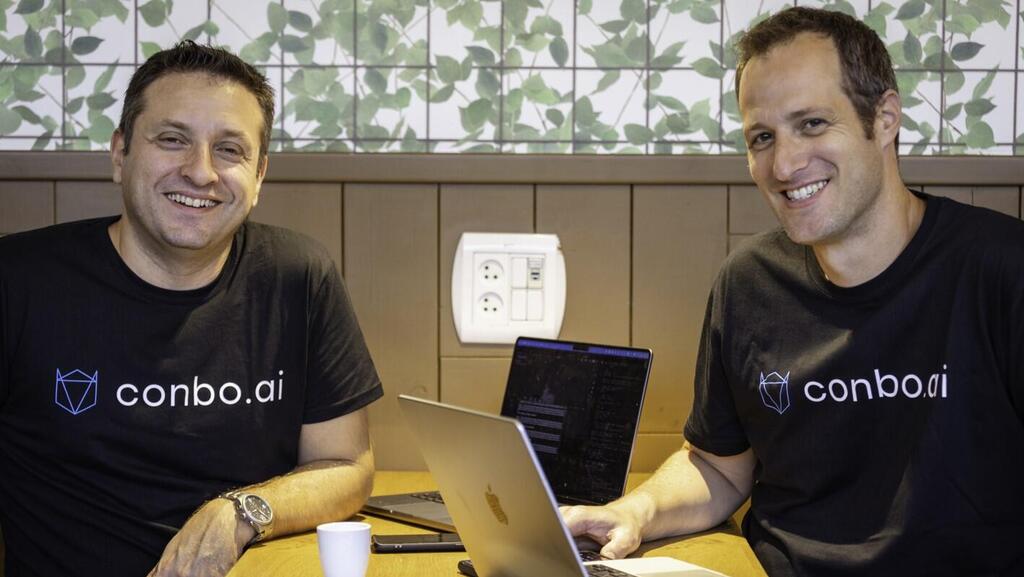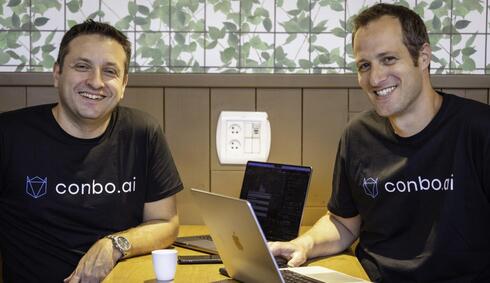
Boarding Pass
Conbo.ai’s billion-dollar opportunity to revolutionize maritime terminals
The Israeli company has raised $2 million to help with the sensitivities surrounding supply chains
“Global supply chains are extremely sensitive to changes in demand, production, global economy, political interests, and whatnot,” explained Conbo.ai. “AI and big data technologies were harnessed to enable better efficiency and predictability, but they are limited by the data they process.”
According to the company, while there is wide and varied relevant data online to feed AI algorithms, key logistic hubs such as maritime terminals and train operators are struggling to digitize their operations due to traditional reasons and unique needs, making data collection a real challenge.
Conbo.ai uses ‘artificial-intuition’ to create a SaaS platform that offers reliable digitalization and analysis for key hubs in supply chains around the world. “Thousands of terminals and ports worldwide can save up to 50% while boosting productivity by up to 35% using data-driving operations,” the company said.
You can explore the entire company through CTech’s “Startup Boarding Pass” entry below.
Company Name: Conbo.ai
Sector: Supply Chain
Product/Service description:
Utilizing artificial-intuition into visual data to create cost-effective, precise, and reliable digitalization and analysis platform.
A SaaS-based easy-to-adopt solution, that boosts productivity and predictability in key hubs in the supply chains, starting from traffic and cargo analysis in the maritime domain.
Founder Bios:
Eran Pereg,
CEO and co-founder
Reuven Sabi,
CTO and co-founder
Year of Founding: 2019
Last Investment Round: $2 million
Last Investment Stage: Seed
Date of Last Investment: December 2021
Total investment to date: $2 million
Investors (leading and all): theDOCK, IIA, Yarok, and several angels from Microsoft and the maritime field.
Current number of employees: 10
Open positions: Data scientist
Website:
www.conbo.ai
Interview:
How was the idea born?
We started as a 'deep tech' company focusing on data fusion algorithms. This is how we were accepted to TAU Ventures and the Israeli Security Agency accelerator.
In this accelerator, we got exposed to many government players who seek better data collection solutions in the maritime domain, especially terminals and ports.
After a month in the accelerator, we made a successful demo that resulted in government contracts (the first time in the history of the accelerator).
Later we even got a grant from IIA (Israeli Innovation Authority) for a program that focuses on this field.
Related articles:
Additional validation was our Seed leader VC, "theDOCK". TheDOCK is a VC specializing in maritime and supply chain, which walked us through a long and thorough business DD.
This ended with great success after being reviewed by dozens of their field experts and leading market players. Some became our first customers.
What is the need for the product?
Global supply chains are extremely sensitive to changes in demand, production, global economy, political interests, and whatnot.
AI and big data technologies were harnessed to enable better efficiency and predictability, but they are limited by the data they process.
While there is wide and varied relevant data online to feed AI algorithms, key logistic hubs (e.g. maritime terminals and train operators) are struggling to digitize their operations due to traditional reasons and unique needs, making data collection a real challenge.
Their inability to collect valuable metrics cost-effectively results in inefficient operations, compromises business management, and results in costly data gaps and dark spots in chain analysis.
Those data gaps cause a domino effect, from inefficient operations on a small terminal in the U.S., to unpredictable freight management.
How is it changing the market?
Terminals today struggle to adopt modern data handling methodologies since they cannot efficiently collect operational and business metrics.
Some will invest in numerous technological vendors to collect a limited number of operational metrics, but most of them won't be able to utilize data-driven methodologies because integrating numerous data sources and service providers is a significant and costly challenge suitable to a limited group of market giants.
As a result, 80% of the terminals today have yet to transform their businesses into the digital era.
Conbo.ai offers a data fusion technology leveraging existing IP cameras in their facility to collect valuable operational data, and analyze and distribute insights to facility stakeholders and customers. All is done with an easy-to-adopt SaaS solution, allowing a one-station solution that does not require infrastructure modifications or new investments.
Other alternative data collection solutions, which are not Conbo.ai, include: Mobile apps for customers' or contractors' location, RFIDs for equipment identifications, GPS for outdoor areas, mesh networks for indoor (hangars) location, QR codes for remote container identifications, license plate recognition in gates, and more.
How big is the market for the product and who are its main customers?
Thousands of terminals and ports worldwide can save up to 50% while boosting productivity by up to 35% using data-driving operations.
It's a multi-billion USD market, only from the perspective of the maritime terminal.
Expanding our reach to additional terminals (e.g., train and airports) and freight forwarder players, we are talking about dozens of billions.
Does the product exist already? If not - at what stage is it and when is it expected to hit the market?
Yes, the product is operational in selected U.S. maritime terminals.
Who are the main competitors in this sector and how big are they?
Our competition is divided into three groups:
- Hardware vendors - have a market foothold but are limited by their scalability and flexibility.
- Integrators - have a market foothold, do not bring new data to the table - doing integration only and trying to make what they can with existing data.
- Video analytics - have milage on visual data utilization, focuses on security and safety application ('event detections').
What will the money coming in from the round be used for?
With the funds, we will expand our geographical reach into Europe and Asia and support additional use cases and terminal types.
In the "Startup Boarding Pass" section, CTech will cover the (relatively) small investments made in companies during the early stages of their existence - and the entrepreneurs and startups who have not yet had the opportunity to reveal their stories to the world. Please use the linked form and fill it out according to the guidelines. This form is intended for startups raising between $500,000 and $3 million from venture capital funds, angels, or official grants from Israeli and foreign institutions. If relevant, someone at CTech will be in touch for follow-up questions.
